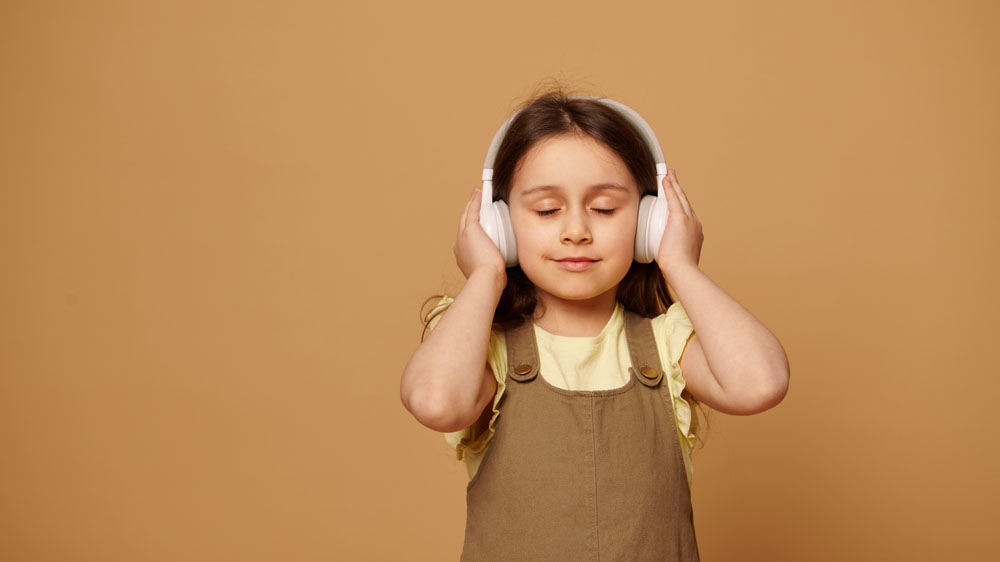Music, that gentle companion that follows us throughout our lives, is much more than just entertainment. It has the power to transport us, make us feel deeply, but also to calm us. When emotions overwhelm us—whether intense, turbulent, or simply invasive. Music to soothe your Emotions, it can become a refuge, a kind melody that harmonizes our entire being.
1- Why Does Music Influence Our Emotions?
From a scientific perspective, music has a profound effect on our brain. By stimulating the production of dopamine, the pleasure hormone, it activates areas associated with emotions and memory. This is why a simple melody can bring back buried memories or provoke a wave of well-being almost instantly.
Certain frequencies and rhythms also influence our brain waves. For example, soft music with low frequencies promotes relaxation by synchronizing our brain activity with alpha and theta waves, which are associated with relaxation and sleep.
2- The Benefits of Music to soothe your emotions
- An Instant Bubble of Serenity
Sometimes, just a few notes are enough to soothe inner turmoil. Music is an excellent outlet for accumulated tension. A classical piece, a gentle piano melody, or an acoustic ballad can act as a comforting balm on an agitated mind. - An Escape from Anxious Thoughts
Anxiety and stress can quickly overwhelm us. But by listening to harmonious sounds, our breathing unconsciously synchronizes with the rhythm of the music, inducing a calming effect. Some playlists specially designed for relaxation, featuring nature sounds or compositions in 432 Hz, are particularly effective in soothing the mind. - A Source of Motivation and Energy
While some music calms, others energize! An upbeat and lively song stimulates the production of endorphins, those happiness hormones that boost our energy and make us want to push ourselves further. Whether it’s to get motivated for exercise or simply to bring a wave of optimism into your day, music becomes a powerful driving force.
3- Which Music to Choose According to Your Emotions?
- To relieve stress and anxiety: Opt for classical music (Debussy, Satie), ambient sounds, or nature sounds (ocean waves, tropical forests).
- To lift your spirits: Choose joyful music, pop, jazz, or funk tracks full of good vibes (Stevie Wonder, Earth, Wind & Fire, Pharrell Williams).
- To release anger: Powerful rhythms like rock, electronic music, or metal help externalize emotions (Muse, Queen, Daft Punk).
- To enhance focus and meditation: Lo-fi music, chill-out, and minimalist compositions are perfect for a clear and peaceful mind.
4- How to Integrate Music into Your Daily Life for Optimal Well-being?
- Create an Emotional Playlist
Having a playlist tailored to each emotional need is an ideal way to use music as a wellness tool. A zen playlist for tired evenings, a motivational playlist to start the day, or even a nostalgic playlist for introspective moments. - Combine Music with Breathing
Pairing music with deep breathing exercises maximizes its relaxing effect. Cardiac coherence, for example, works well with slow music to help regulate heartbeats. - Practice Music Therapy
If you want to go further, music therapy is an approach that uses music for therapeutic purposes. It is particularly effective in managing intense emotions, such as anxiety, post-traumatic stress, or even depression. - Play a Musical Instrument
Listening to music is one thing, but playing it is even more powerful. Playing an instrument engages both body and mind, fostering mindfulness and mental disconnection.
Conclusion
In our fast-paced world, listen to music to soothe your emotions, it stands out as a gentle and accessible remedy of your emotions. Whether it’s to relieve stress, warm a sad heart, or simply recharge, it is a valuable ally in our well-being. So why not take a moment for a healing musical break right now?
Sources :
- “How Music Affects Your Brain and Mood” – Harvard Medical School
- “The Power of Music for Emotional Well-Being” – American Psychological Association
- “Music Therapy and Stress Reduction” – National Center for Biotechnology Information
- “The Role of Music in Emotional Regulation” – Journal of Music Therapy
- “Listening to Music for Anxiety Relief” – Mayo Clinic


